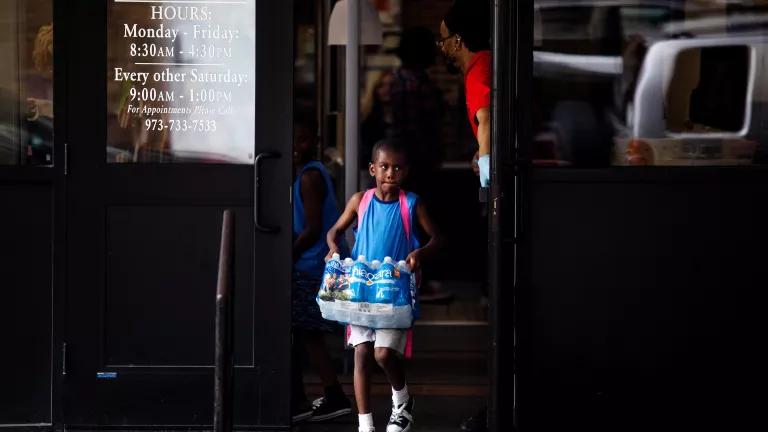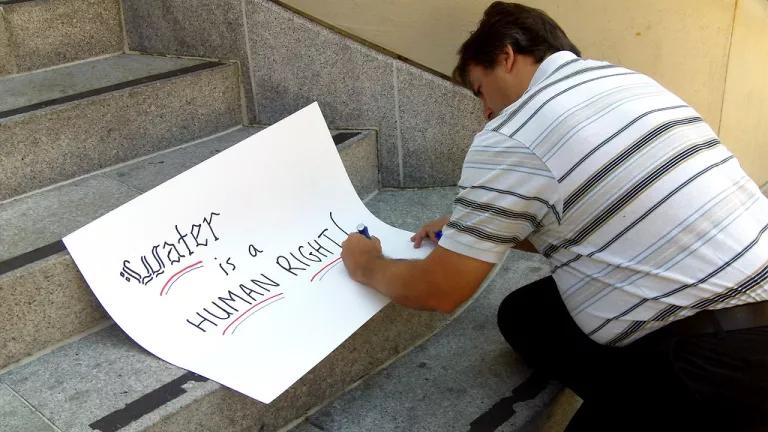
Anyone who doubts the urgent need for environmental justice in the United States need look no further than the public health crisis that is unfolding in Flint, Michigan. In 2014, city and state officials decided to start supplying residents with water pumped from the Flint River instead of continuing to buy municipal water from nearby Detroit, and it wasn’t long before people began to express alarm. The water didn’t taste right, and it smelled funny. Soon more ominous complaints began to mount—of rashes, hair loss, vomiting and other health problems. Through it all, residents were told by officials not to worry; the drinking water was fine.
It wasn’t. Medical studies conducted more than a year after Flint switched its water supply found the number of children living with dangerous levels of lead in their bloodstream had skyrocketed. Why? The water from the Flint River was corrosive, and this had been causing lead from the city’s old pipes to leach into the tap water. As if that weren’t bad enough, both city and state officials had been aware for months of test results that showed Flint’s drinking water was contaminated with shockingly high levels of lead, yet they’d neglected to take any meaningful action to address the crisis.
The people of Flint had good reason to fear they were especially vulnerable to lead exposure. The city’s population is predominantly African-American, and average blood lead levels are higher nationally in African-American children. Nearly 90 percent of the housing stock in Flint was built before high-lead paint was banned by federal law. On October 1, 2015, less than a week after doctors reported a doubling in the proportion of children under the age of five in Flint with elevated blood lead levels, NRDC joined with local, faith-based organizations and other advocacy groups to demand that the federal Environmental Protection Agency step in and take emergency action to secure safe drinking water for Flint residents. In November, working in concert with the American Civil Liberties Union of Michigan and local advocates, NRDC notified the city and state of its intent to file suit on behalf of residents whose escalating concerns about the safety of their drinking water had been dismissed or ignored.
“All too often, it’s places like Flint—communities of color or low-income neighborhoods struggling economically—that suffer first and suffer most from the pollution that poisons our air, water and food,” says NRDC President Rhea Suh. “For families on the front lines, the consequences can be devastating. But they are standing up for justice as never before—and when they call on NRDC to provide legal firepower, we’re ready to partner with them. We never lose sight of who has the most at stake. In Flint, as everywhere else we work, it’s local communities, living on the front lines of pollution, who not only have the courage to organize but the vision, resolve and tenacity to see justice done.”



